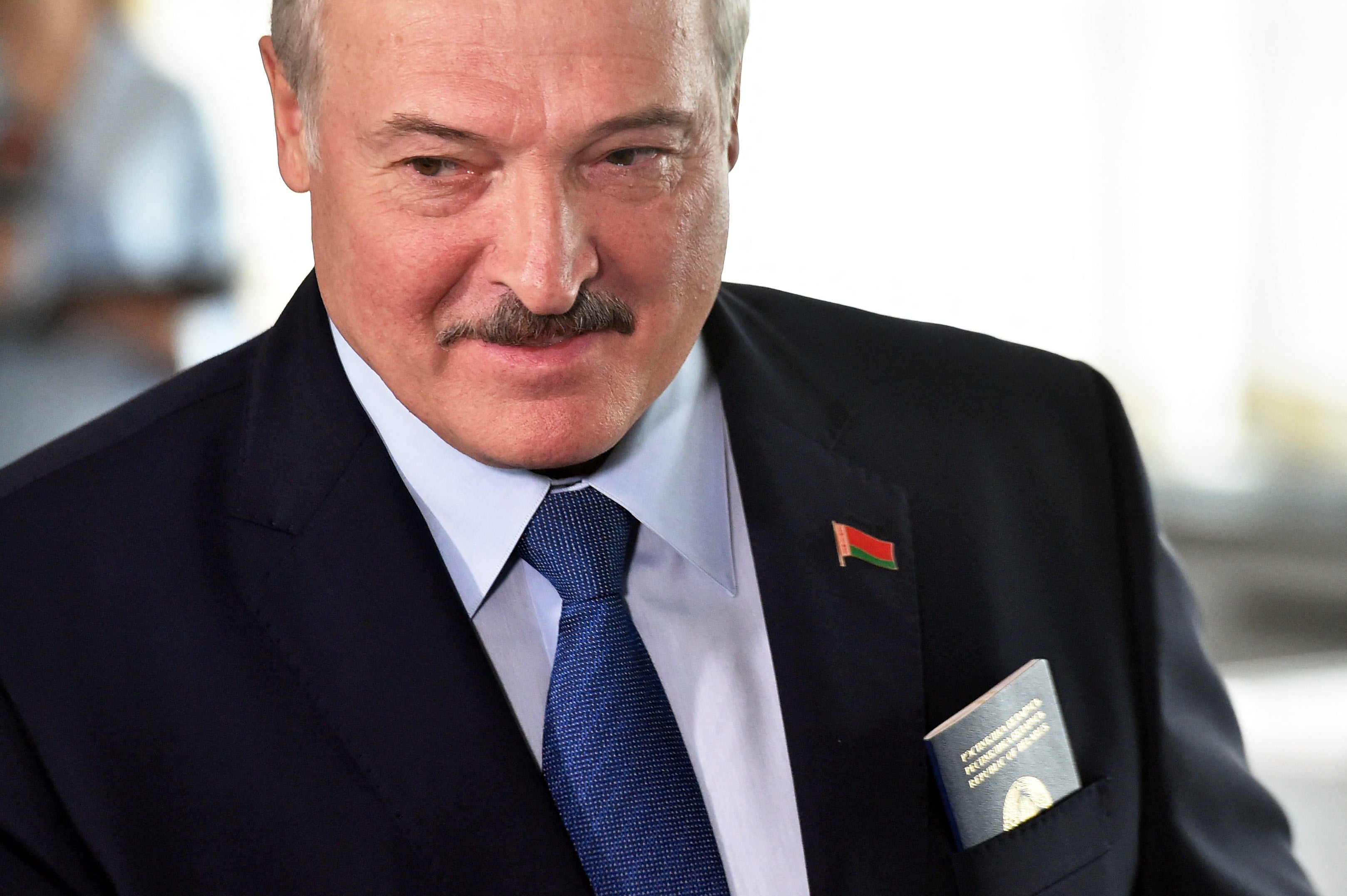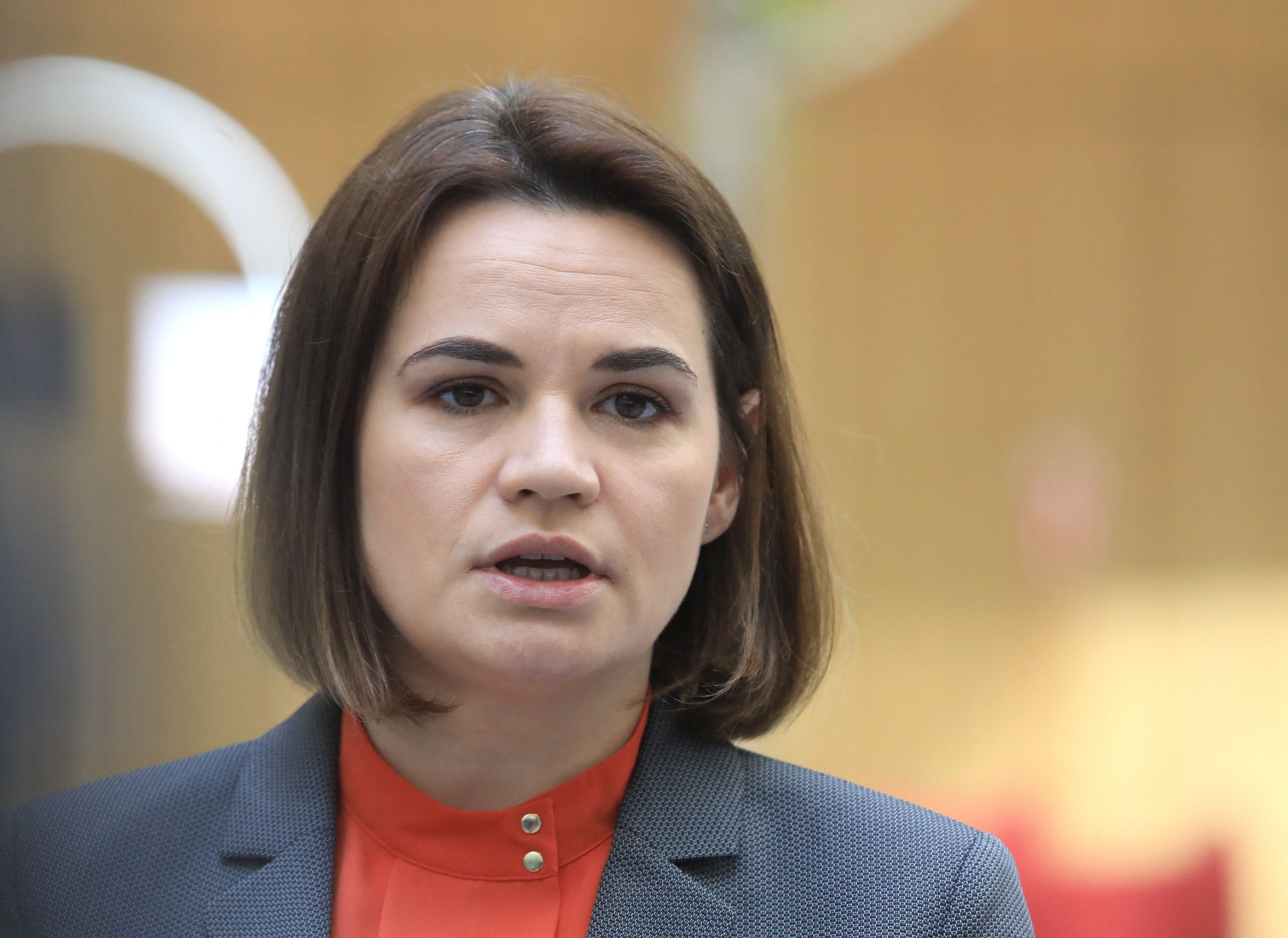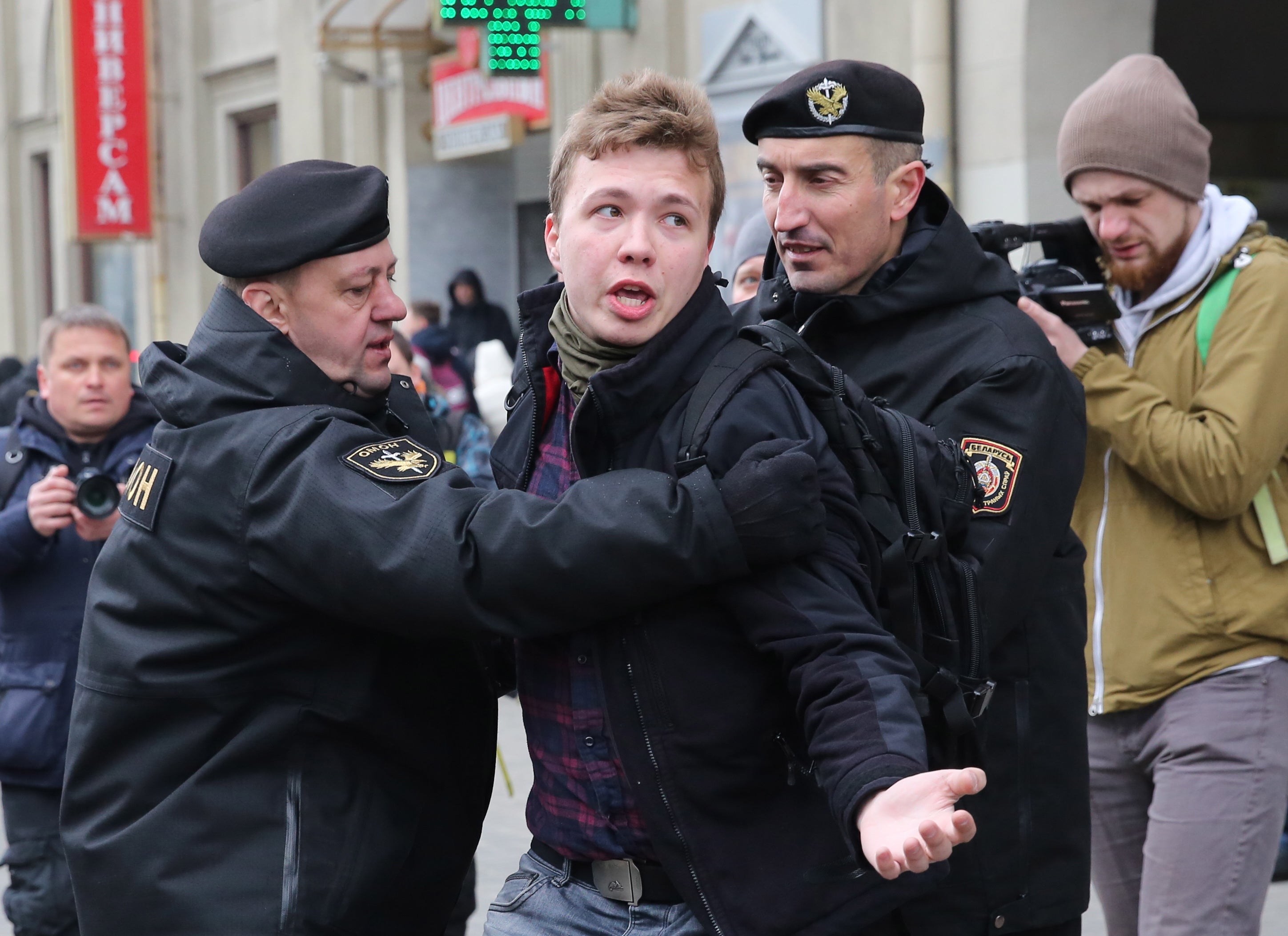‘He doesn’t give a damn’: Whatever the west throws at him, Lukashenko will continue to think he’s invincible
The Belarus president appears ready to risk ‘confrontation’ with the west, reports Oliver Carroll


Your support helps us to tell the story
From reproductive rights to climate change to Big Tech, The Independent is on the ground when the story is developing. Whether it's investigating the financials of Elon Musk's pro-Trump PAC or producing our latest documentary, 'The A Word', which shines a light on the American women fighting for reproductive rights, we know how important it is to parse out the facts from the messaging.
At such a critical moment in US history, we need reporters on the ground. Your donation allows us to keep sending journalists to speak to both sides of the story.
The Independent is trusted by Americans across the entire political spectrum. And unlike many other quality news outlets, we choose not to lock Americans out of our reporting and analysis with paywalls. We believe quality journalism should be available to everyone, paid for by those who can afford it.
Your support makes all the difference.Forgotten for months, Belarus and its volatile president of 26 years are back on the western agenda – all thanks to Alexander Lukashenko’s decision to commandeer a passenger jet and arrest the opposition blogger Roman Protasevich, who was flying onboard.
On Monday, the United Kingdom became the first country to bar flights by Belavia, the Belarusian state carrier. Europe looks likely to follow suit, with leaders promising a strong response that might even extend to bans on land communication with Belarus.
All of that would no doubt anger Mr Lukashenko. But at the same time, even if realised, it is highly unlikely to change his behaviour.
Since facing down an unexpected challenge from the streets after apparently losing presidential elections last August, Mr Lukashenko has largely removed the immediate threat to his rule. For that he has Vladimir Putin’s military and cash guarantees to thank. Europe, which supported the opposition, has on the contrary been left with very few levers to pull.
Sunday’s incident was a “demonstration” to Europe that Lukashenko no longer “gave a damn” what they think, said Ryhor Astapenia, associate researcher at the Chatham House think tank: “Lukashenko has shown that he is ready to risk acute confrontation with the west, to the extent that he’s prepared to use [an] armed fighter jet to forcibly land a European passenger plane.”
Shocking as it was, the mid-air operation is unlikely to make material change things inside Belarus. There, the situation is grim, but it has been getting worse for some time. Locals are increasingly resigned to Mr Lukashenko’s turbulent impulses.
In the week leading up to the plane diversion, Belarusian authorities closed the door on the country’s largest independent news site. They also pushed political prisoner Vitold Ashurok to his death.

Mr Ashurok, who had been sentenced for attending a protest, suffered a heart attack in his cell. He became the eighth victim of Mr Lukashenko’s grisly post-election clampdown.
Record numbers of dissidents continue to be put on trial and jailed in Belarusian prisons. According to Valentin Stefanovich of the Viasna human rights NGO, the number of political prisoners has increased significantly over recent months. Officially, the number now stands at over 400, but that figure is set to be updated to nearer 500 later this week, he says. Many of them have been tortured.
Mr Protasevich, the latest addition to the list, is unlikely to be given the red carpet treatment. Contrary to some reports, he has not yet been charged under articles that invoke the death penalty. But given the extent to which the journalist has irked Mr Lukashenko, a terrifying experience almost certainly awaits.
“We can expect that he’ll soon be wheeled out to perform a confession in front of state TV cameras,” says the expert Ryhor Astapenia. “As far as the future is concerned, his best hope is for political change.”
For now at least, that seems a far away prospect. Mr Lukashenko does face serious structural issues – not least the obvious absence of legitimacy and a tanking economy. But in the absence of harsh economic sanctions, which will hurt the Belarusian people most of all, the six-term autocrat will be able to carry on for some time.
Most significantly, liberal changes inside Belarus are also only possible in combination with even less likely liberal changes within Russia.

Moscow on its part has made it clear that it sees Mr Lukashenko’s survival as a litmus test for its own longevity. And it has enjoyed considerable success getting its own way by framing the Belarus protests as a domestic issue – or at least one that should be resolved without western interference.
For Viasna’s Valentin Stefanovich, this is where Mr Lukashenko’s latest adventure may have introduced a vulnerability into the equation. Intercepting a plane flying between two European countries automatically moved things far beyond the domestic agenda, he suggested:
“Mr Lukashenko can no longer say his repressive policies have no impact on neighbouring countries. The west will have to step up and take him more seriously.”
Join our commenting forum
Join thought-provoking conversations, follow other Independent readers and see their replies
Comments